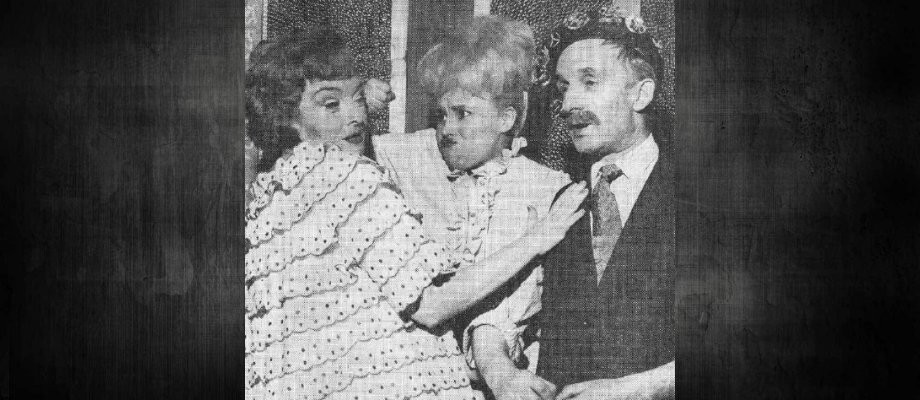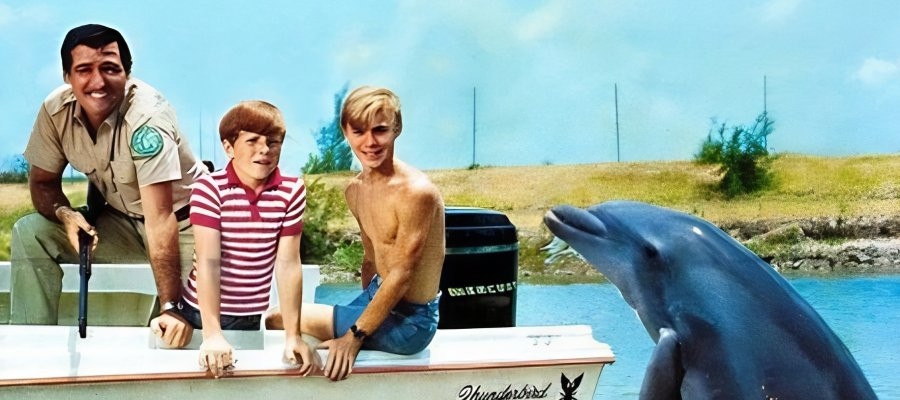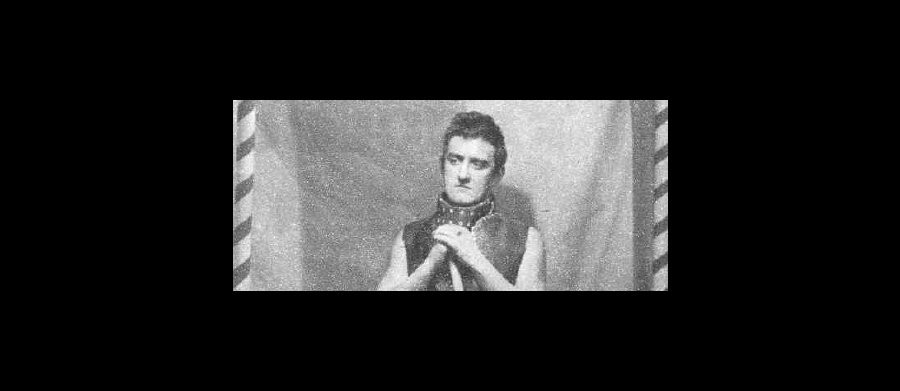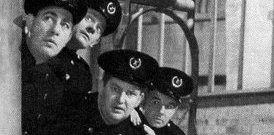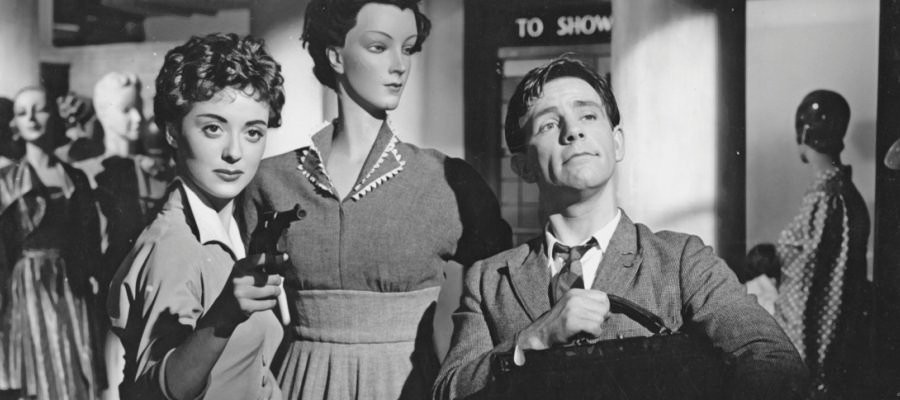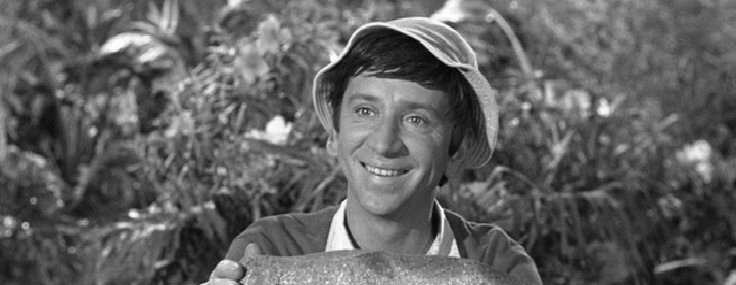
They Throw It At You
1964 - United Kingdom"Come on, love - four balls for sixpence. Be a devil." That's how Judd, the boy working the Roger-the-Lodger stall, meets Georgie, the mill girl out for holiday excitement. – TV Times October 1964
Taking the advice that you should write what you know about, Lancashire resident Allan Prior wrote the first of three plays set along Blackpool's renowned 'Golden Mile', the name given to the stretch of Promenade between the North and South piers, for ITV's anthology series Armchair Theatre, in 1964.
Newcastle born Prior spent much of his early life in and around Blackpool, where he lived on a council estate and eventually attended the grammar school on Raikes Parade. His father had found work difficult to come by in the post First World War years when his rank of officer meant very little on civvy street and where he could only get a job as a commercial traveller.
By the time he was twenty-one, the younger Prior found himself fighting the next World War, stationed at County Down as an airman with 130 Spitfire Squadron. But he was determined that after the war was over, he wouldn't suffer the same fate as his father. A fellow airman had shown him a short story he had written for a writing competition. Prior read it and was impressed but thought he could do better. He could. His two-page story of a Co Down farmer who leaves the land to join the RAF won the competition.
By the 1950s, Prior was writing radio plays for the BBC, had his first novel in print, and then turned his attention to television. With writer Troy Kennedy Martin he helped establish the police procedural series Z Cars in 1962, writing the first ten episodes and going on to write another sixty episodes during the programme's run. One particular episode was described by the critic Philip Purser as “the best series drama, live or filmed, I have ever seen on television”.

They Throw It At You perfectly catches the atmosphere of one of Britain's most popular seaside resorts in its heyday with its pleasure-seeking visitors and vast array of amusement arcades, gift shops, booths, sideshows, hotdog stalls and candy floss stands. "It's a target in the North and Midlands attracting two sorts of people." Said Prior when interviewed for the TV Times in 1964. "One is looking for fortune, the other for romance. Generally, they find neither, occasionally both, as in this first play."
The "Roger the Lodger" stall is where a sixpence buys you four throws - and any ball that achieves a successful shot at Roger tips a young girl out of bed. This is a lucrative business. "Money - they throw it at you!" Says Judd, who works on the stall with his girlfriend Thelma. So when the stall-holder suddenly dies, Judd moves quickly to do a deal with the owner's widow, Ma Waite. Unfortunately, Judd has no money, only an eye for a chance, but that's enough to motivate this particular wide-boy. Meanwhile, he has met Georgie Ashton, a wide-eyed innocent from Blackburn. Georgie isn't dreaming of money. She's dreaming of romance. And she might just turn Judd's head. "We men are helpless in the face of women", said Prior. "Hog-tied before we know it!"

Starring as Georgie was the young and lovely Julia Foster who had begun her television career in 1959 in an ITV Playhouse presentation Moment of Troops before going on to appear as student nurse Anne Carson in ITV's hugely popular medical soap Emergency-Ward 10. Foster was one of the best-known faces on television in the 1960s and 1970s although she was the leading star in very few series. Her most recent appearance (at the time of writing) was in the 2020 Doctor Who story Orphan 55. She is the mother of television celebrity Ben Fogle.
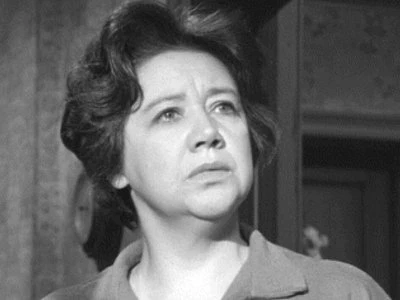
Terry Palmer played Judd, and with only 20 screen credits on his CV, the last being in 1978, he is not as well remembered as some of the other actors in the play. Lennard Pearce (Only Fools and Horses) played the ill-fated Albert Waite and his soon-to-be-widowed, Ma, was played by Megs Jenkins, a prolific screen actress who the Independent newspaper described as 'the personification of plump cheer and kindliness.' Also appearing was Jack Smethurst (Love Thy Neighbour).
Broadcast on Sunday 25 October 1964 at 9.35pm, the viewing figures for They Throw It At You makes interesting reading. In London it made its way into the audience figures chart at number 4, in the Midlands it was number 3 (beaten only by the two weekly episodes of Coronation Street), but in the North, where the story was set and where you’d expect it to perform the best, it only made number 10. Seemingly the people of the North had less interest in what was happening on their own doorstep than the rest of the country did.
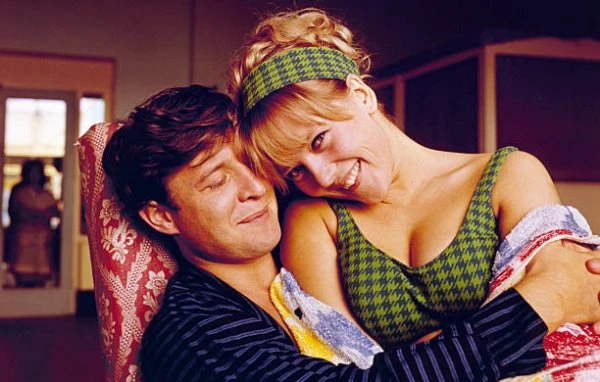
Although the first part of a trilogy and filmed around the same time as the next two stories, viewers had to wait until December for the next play (The Girl in the Picture) and January 1965 for the third play (I've Got a System).
Seen this show? How do you rate it?
Seen this show? How do you rate it?
Published on June 9th, 2023. Written by Marc Saul for Television Heaven.


